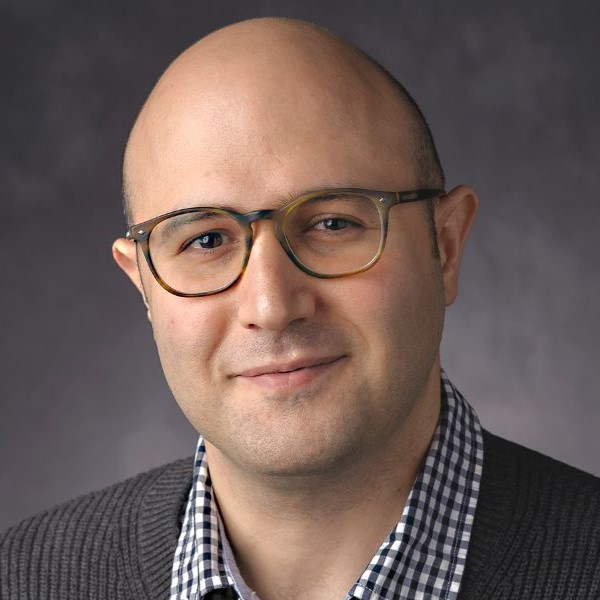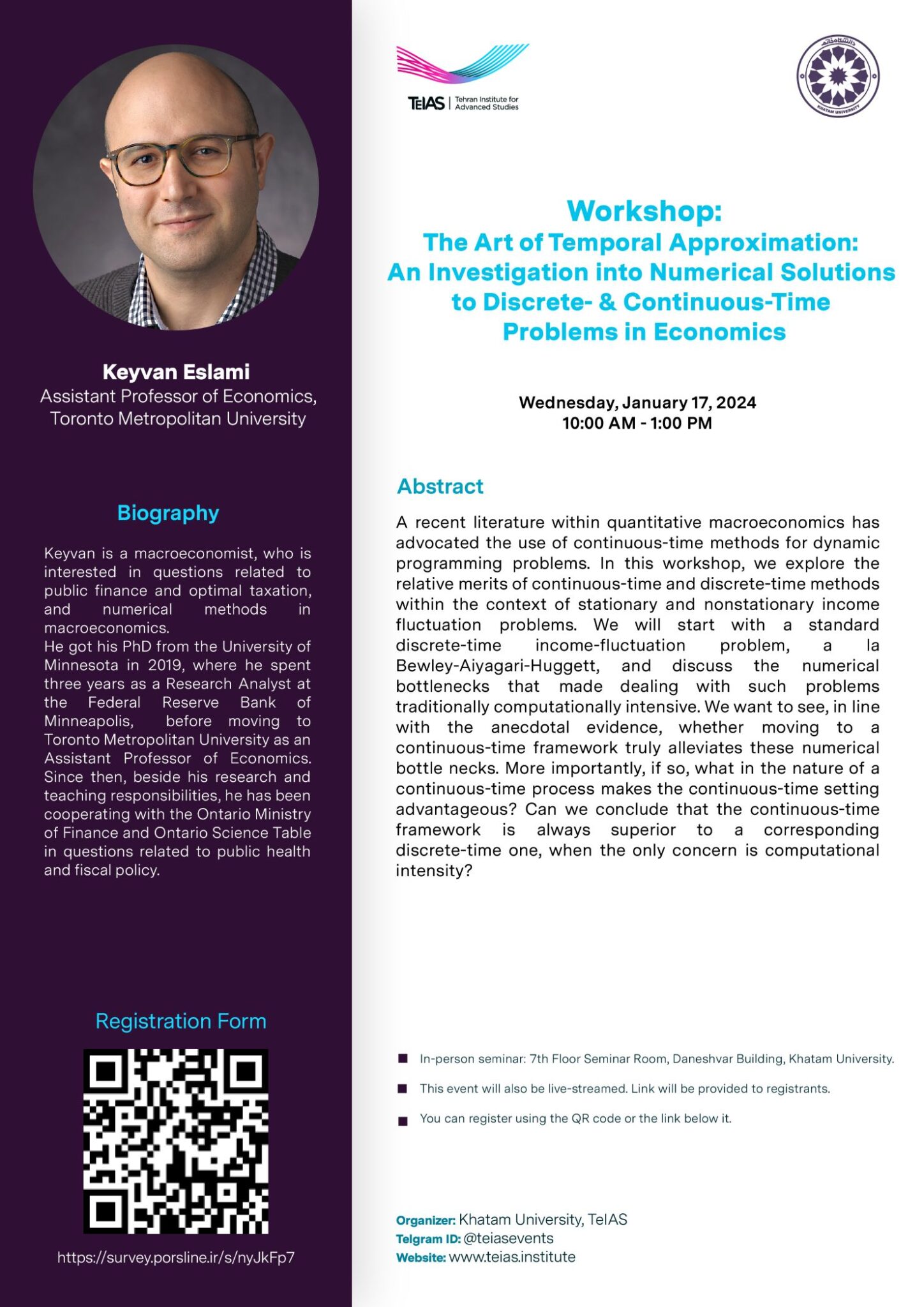
Keyvan is a macroeconomist, who is interested in questions related to public finance and optimal taxation, and numerical methods in macroeconomics. He got his PhD from the University of Minnesota in 2019, where he spent three years as a Research Analyst at the Federal Reserve Bank of Minneapolis, before moving to Toronto Metropolitan University as an Assistant Professor of Economics. Since then, beside his research and teaching responsibilities, he has been cooperating with the Ontario Ministry of Finance and Ontario Science Table in questions related to public health and fiscal policy.

